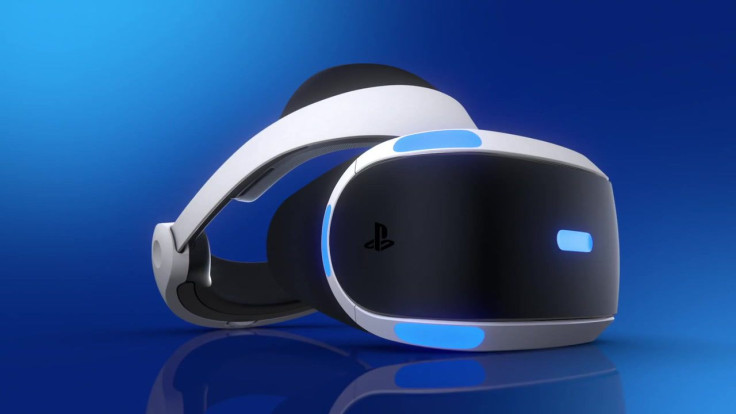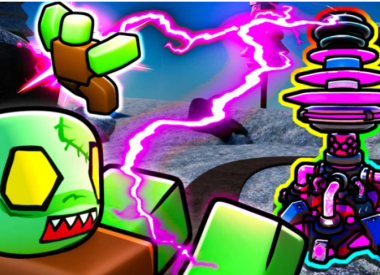PlayStation VR releases to the public on Oct. 13, but review embargos lifted Wednesday. After spending several hours with Sony’s “low-price” VR headset, critics from the likes of CNET, Game Informer, IGN and Kotaku have reached a verdict. As predicted, there’s good and bad to behold.
For those that have been totally asleep at the wheel, PlayStation VR was first revealed at GDC 2014 under the Project Morpheus code name. Similar to competitors like the HTC Vive and Oculus Rift, this headset straps around the user’s head to fully immerse them in 3D video game worlds. While the device acts as one’s eyes, input is accomplished using the standard DualShock 4 or PlayStation Move controllers. Motion tracking with the PlayStation Camera registers all of these sensors in action. In order to truly experience its full breadth of content, most users will have to pay $499 for the headset, two PlayStation Move wands and the required camera. A sku with the headset alone is $399. This is, of course, without figuring in the mandatory PS4 console cost too.
By being marketed alongside the PS4, PlayStation VR is able to break into the homes of more than 40 million customers that are already locked into Sony’s ecosystem. It’s a grand vision, but the final hardware seemingly offers a mixed experience. Here’s what the critics are saying.
THE GOOD
CNET: “The question I get asked most about PSVR is, "Does it work?" Make no mistake: I let out an audible gasp the first time I tried ‘Batman Arkham VR.’ It felt similar to the first time I demoed the HTC Vive ‘Portal: Aperture Robot Repair’ demo. That feeling of shocking immersion is certainly ever-present. The PSVR lets you escape the world you currently occupy and warp into a fully 3D artificial existence. It works.”
Game Informer: “PlayStation VR is cheaper, offers a legitimate virtual-reality experience that is more comfortable, and is easier to use than its competitors. For the console-exclusive gamers looking to enter the realm of virtual reality, PlayStation VR gets the job done. You can enter virtual worlds, get a sense that you’re really there, and have new interactive gaming experiences unlike anything you’ve seen before on consoles.”
IGN: “One of the most important parts of a VR headset is the screen, and having used the higher-resolution Oculus Rift and HTC Vive (which both use two screens for a combined resolution of 2160x1200), I’m impressed at the quality of the PlayStation VR’s 1920x1080 image, which is split down the middle to display a different point of view for each eye. While the resolution is noticeably lower, the ‘screen door effect,’ caused by the faint lines that separate the pixels on a display when you view it up close, is minimal. In-game text is very readable (though it must be larger than on other headsets to be legible). There’s also little or none of the visible radial lens pattern or streaking light effects I observed on the other two headsets.”
Kotaku: “The PSVR isn’t all that difficult to set up. You run a passthrough HDMI cable from the small new PSVR receiver box to your TV, and another HDMI cable to your PS4. You plug a USB cable from the box into your PS4. You plug the headset into the box. You sync the two Move controllers and plug in the camera. You put the camera on top of your TV. You run a quick calibration, and that’s pretty much it.”
Of course, there are a few shortcomings holding the new hardware back such as the headset’s reliance on old technology.
THE BAD
CNET: “Is the PlayStation VR as ‘powerful’ as the PC-based Oculus Rift or HTC Vive? Well, no. The PSVR's single-camera design can't track motion as accurately as the Vive, and the helmet's display resolution is a tad lower than the Rift and Vive, with a slightly smaller viewing angle too (100 vs. 110 degrees). And while the early batch of PSVR games have high frame rates and look shockingly good, you'll note far-off details in vast asteroid belts or how at the bottom of an ocean trench it can become muddy.”
Game Informer: “PlayStation VR did give me the most issues between the three major VR headsets. First-person shooters have never given me issue, nor have intense rhythm games like ‘Rez’ or ‘Amplitude,’ but stereoscopic 3D has always given me a headache. Oculus and Vive usually leave me with a headache, but some extended PlayStation VR sessions left me feeling nauseated alongside my normal VR headache, depending on the game.”
IGN: “The PlayStation VR’s reliance on its single camera is a significant weakness. It does work reasonably well thanks to the depth-sensing capabilities of its two lenses, but its field of view is narrow enough that I frequently bumped up against its limits with the Move controllers. With the recommended six feet of distance between me and the camera, I find I have to frequently adjust the angle to cover me when switching between a standing experience like ‘Batman: Arkham VR’ and a sitting one like ‘SuperHyperCube.’”
Kotaku: “If you buy a PSVR, you’re locking yourself in with Sony and hoping they continue to support the headset. Ironically, both the Move in your hand and the camera on your TV are reminders that Sony frequently does not support their hardware, and for all of Sony’s assurances about their commitment to VR, I’m skeptical that the PSVR will be any different. Unlike competing PC headsets, it will be much harder for the PSVR to find an extended life though hacks and independently created software. If Sony decides to stop supporting it, it will fast become one more hunk of plastic sitting in the closet.”
There’s the rub. On the basic level, PlayStation VR succeeds at offering a virtual reality experience that’s cheaper and reasonably comparable to its closest competitors. However, tracking issues, nausea and game support are obvious drawbacks. There’s also no hiding that the hardware itself isn’t quite up to snuff. However, those willing to experiment with the latest way to play will certainly have some awe-inspiring experiences.
PlayStation VR comes to retail on Oct. 13.
What do you think of these reviews? Are you more or less encouraged to buy a headset after the response? Tell us in the comments section!


















